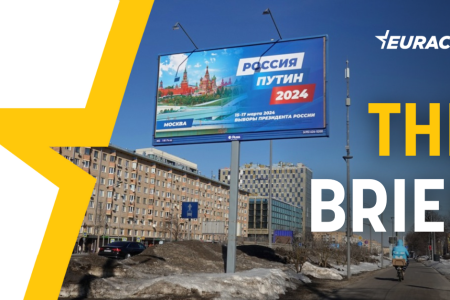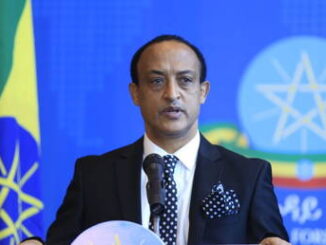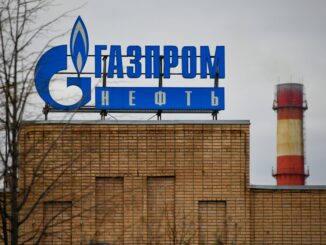
When I think about the Russian elections, particularly the presidential one taking place this weekend, I cannot help but remember the totalitarian voting in which I participated as a youngster.
We have already argued that Vladimir Putin’s regime should no longer be described as authoritarian: After the brutal aggression against Ukraine, it has degenerated into totalitarianism akin to the Soviet Union, or worse.
I lived what should have been the best years of my life, my youth, under the totalitarian regimes of Bulgaria and Romania (I was a student in Bucharest), and I voted in successive elections in Bulgaria in the 1970s and 1980s.
Of course, these were not real elections. We knew the result in advance, just like now in Russia. The only unknown about these elections is whether Putin will receive 80% or more.
Yet, for some reason, totalitarian regimes mimic democracy by holding elections which mean nothing.
In the case of Russia, it’s Putin who will decide the result. In communist Bulgaria (The People’s Republic of Bulgaria), the leadership of the ruling Communist Party decided what the election result should be – always above 90%.
Most of the alternative votes (and there were not many) went to the Agrarian Party, an ally of the Communist Party. The same is now happening in Russia, where the three other candidates, whose names nobody will remember, are supporters of Vladimir Putin and will receive only a negligible fraction of the votes. Real contenders were not allowed to run.
In Bulgaria, I remember nobody doubting that the Communist Party would win, but the turnout was massive, and most people put on their Sunday best to go to the polling stations.
This was because the regime created an atmosphere of celebration on election day, with flags, music, and flowers all around. Everything was clean, there were no incidents, and even the police were friendly.
While I regularly attracted attention from the authorities due to my long hair, perceived as mimicking the ‘bad influences from the West’, on these occasions, they usually left me alone.
Officially, the sale of alcohol was prohibited on election day and even on the so-called “reflection day” on the eve of the poll. But I remember that despite that, alcohol was freely poured, probably to numb the electorate.
When I read reports about the Russian elections, I sense the same atmospherics created by the authorities.
Reportedly, in Siberia, raffles in which everyone was a winner were organised to motivate voters, who could win fuel wood, gasoline, vacuum cleaners, or even a washing machine – all precious commodities in the vast but poor region.
I had heard rumours that in communist Bulgaria, “enemies of the people” scribbled insults against those in power on the ballot paper (anonymously, of course). Or that some cast a blank ballot as a sign of disagreement.
This is why election committees were carefully selected to maintain utmost secrecy on the scope of this dissent.
No one had an idea how numerous those opposed to the regime were, and even today, there is no information. It was assumed that their number was rather small.
Now that we live in times when social media plays an important role, measuring the size of dissent in Russia could be more possible.
The widow of Russia’s late opposition leader Alexei Navalny has called on voters to turn up at polling stations en masse at noon on Sunday and either vote against Vladimir Putin or spoil their ballot.
The protest action, known as “Noon Against Putin”, honours Navalny’s last wishes following his death in prison in February.
Judging by the number of people who braved the authorities and queued to lay flowers at Navalny’s grave, noon on Sunday is certainly a time to watch.
Another image that illustrates the real nature of Russian elections is the footage coming from the territories illegally annexed by Russia.
Military personnel dressed like robocops bring ballot boxes to people’s houses – supposedly to keep them ‘safe’, as going out may be ‘dangerous’ – but by doing so force residents to vote, grossly violating the secrecy of their ballot.
The elections in communist Bulgaria that I remember were fake, but they weren’t ugly. In contrast, this weekend’s elections in Russia are already hideous.
The elections I remember were the original totalitarianism. Russia’s are probably Totalitarianism 2.0.



